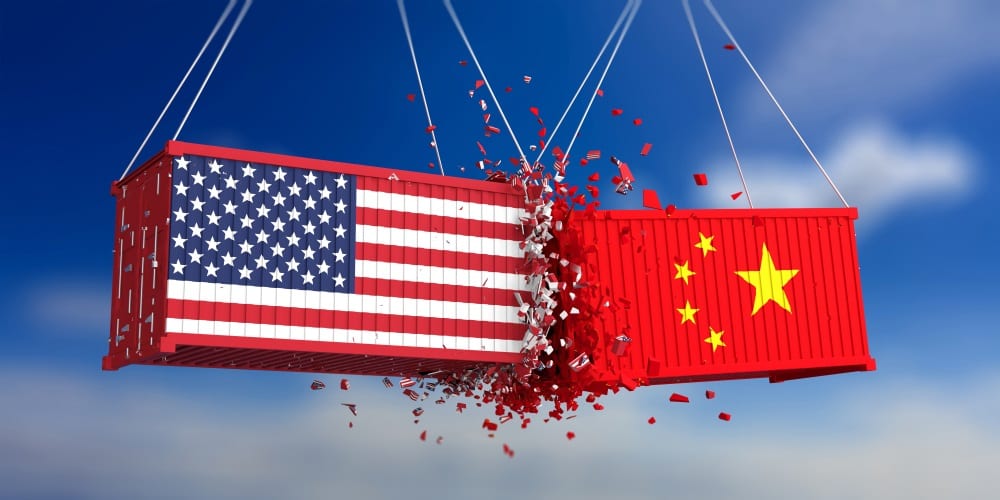Blog ▸ Employers ▸ Opinion- US Election Implications for ASEAN / South East Asia
Opinion- US Election Implications for ASEAN / South East Asia
October 2020
By Vahid Haghzare, Director Silicon Valley Associates Recruitment
One of the top IT Recruitment Agencies in Hong Kong, Dubai, Shenzhen, Shanghai, Singapore, and Japan, SVA Recruitment is an IT and employment agency that provides jobs, executive search, and recruitment services.
The upcoming US elections are already garnering a tremendous amount of coverage and the race to President looks to be particularly tense, particularly given some of the challenges currently facing American politics. There are key issues that go beyond the economy and focus heavily on race relations, police power, and the fallout of the Coronavirus pandemic. Both candidates are calling it the most important election in American history and given the list of issues that the winner will need to grapple with, this may well be accurate.
So what might the impact be on China, Hong Kong, and Southeast Asia, whether a Democrat or Republic win is the result? There is absolutely no doubt that the successful candidate will have a significant global role to play with regard to determining trade with China, broader globalization, and the future of the IT/tech industry, particularly with regards to international resourcing, trade agreements, skill-sharing, standards adoption, IP and more.
It's a topic that certainly has the attention of the team at Silicon Valley Associates Recruitment, our candidates, and clients, so let's take a closer look:

The Trade War
In terms of the current trade war, there is already a broad consensus across Europe and Southeast Asia that tensions between the South China Sea and US-China bodies, combined with the impact of the existing trade war, will persist beyond November's election result. This year has seen the stand-off between the US and Chinese administrations escalate, with both sides taking an increasingly firm and irritable stance with each other in a bid to gain the upper hand.

Technology
In the technology arena alone the rapidly worsening relationship between Beijing and Washington has become the subject of press headlines across the world, as Trump has vowed to target Chinese technology giants from Tik Tok to Huawei. And of course, in manufacturing, both countries have been imposing increasing tariffs on each other's exports, with America saying that there are long-term problems with IP theft and unfair trading practices, and China saying that America is trying to curb its global ascent as an economic superpower.
Ongoing Baggage
There is already a tremendous amount of baggage here and even if Joe Biden trumps Trump to a win it will take time and effort to repair the damage. Certainly, a key driver of the rivalry was Trump's hawkish position, but many diplomats believe that the US-China trade clash had been building far more substantially over time, meaning that a change in occupancy at the White House will not provide an automatic fix.
However, a recent survey of Southeast Asian business, government, and political pundits has found that 60% of respondents thought that the US could become a more positive strategic partner to the region if the November vote sees a change in leadership.
US Strategy with ASEAN Markets
The fact that Trump has not set an ASEAN envoy in place has been viewed as insulting and analysts are particularly keen that America should cease allowing its Chinese rivalry to influence its relations with Southeast Asia as a whole. However, there will be a long way to go before the US has a focused strong foreign policy designed specifically for the ASEAN region. In fact, many diplomats believe that Biden would retain the existing US-China policy and Southeast Asia would continue to suffer from Chinese-US quarrels. Other experts believe that Biden would mirror his policies in the Asia region with that of his old boss Obama.
It is interesting to note that on the Democratic Party Platform there is a stated intention to strengthen alliances between the US and Asia and this could provide a boost. This would be expected to influence Biden's strategy if he came into power. Certainly, a greater degree of certainty and a clear foreign policy for the region is entirely overdue and would unlock far greater economic value and certainty for the future.
So what about Globalization?
Both Trump and Biden have committed to restoring America's manufacturing industry and reducing reliance on Chinese dependency. They have threatened to penalize US firms that take jobs abroad, but both candidates have a different approach in mind. Analysts believe that Trump would do this on his own while Biden would be more likely to seek a coalition of allies that help to mitigate existing Chinese dependency.
The new trade deal between the US and Mexico has already seen a surge in firms wishing to manufacture within Mexico for export to the US, including Chinese and other ASEAN firms who are keen to escape the volatility and uncertainty of the current trade war. These firms include Pegatron and Foxconn, the Taiwanese firms that both supply Apple on a grand scale, and who are determined to escape the fallout of any cold war that could result from persistently difficult US-Chinese relations. If things do not improve between Washington and Beijing, it may be that more ASEAN firms begin to look at migrating their operations to countries such as Mexico for an easier route to American export markets.
McKinsey believes that 26% of global exports (valued at the US $4.6 trillion) could migrate in the near term, either to domestic production, offshoring to a fresh location, or nearshoring. Boston Consulting Group believes that reciprocal trade between China and the US will shrink by 15% by 2023 against 2019 levels. Global supply chains overall will become less Chinese-centric and shorter overall, even if the strength of Chinese manufacturing means that it will never be completely cut out of the equation.
So the world economy is already de-globalizing, and whoever wins the American election will do so among this broader trend. Both candidates have said that they will repatriate key industries such as drug supplies and critical medical manufacturing to their home shores. What this means for other manufacturing industries is currently less clear.
Summary
There's still a way to go until the November election date and no doubt the debate will continue to throw up surprises on both sides. In the meantime, American citizens and everyone across the world affected by US politics and trade will watch the presidential race with sharp interest.
Whichever way the tides go, Silicon Valley Associates Recruitment is confident in the continued growth of South East Asia, as a major battleground for trade and alliances between the two superpowers. This competition will bring accelerated growth and development to the region, and with offices and experts based out of Singapore, we hope to support local, Chinese or Western firms investing and trading in the area.
-----------
Silicon Valley Associates is ideally positioned to support the continual demand from tech companies and IT Departments looking to hire in Hong Kong, Asia, and Worldwide. Please let us know if you would further advise on the above topic or your hiring needs
Follow us on 




 to get daily updates!
to get daily updates!